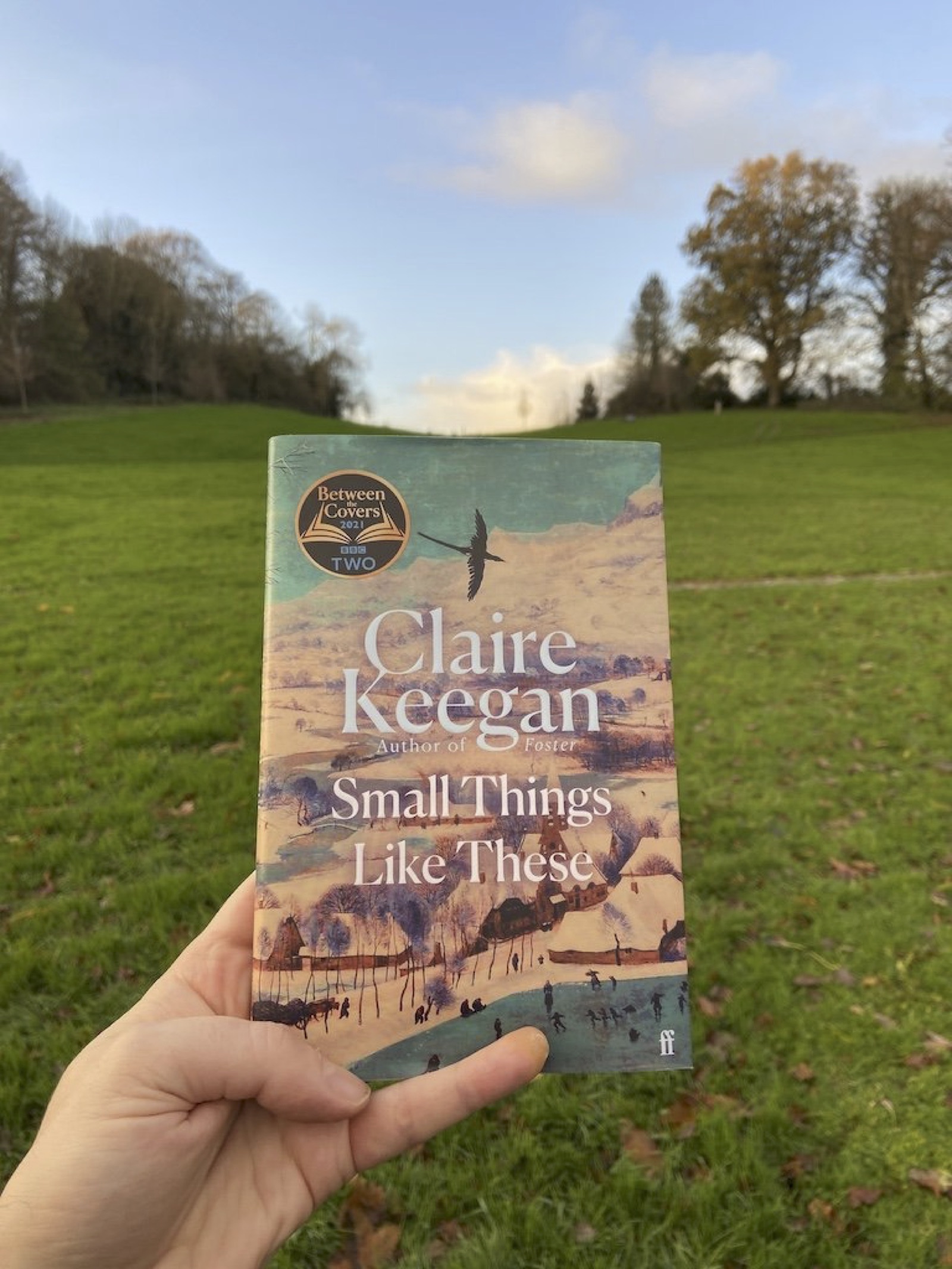After being awarded the Orwell Prize in 2022 and being shortlisted for the Booker Prize 2022, with the Boston Globe claiming it is “a story you will want to read again and again,” and People Magazine declaring it “a sparse, breathtakingly perfect gem of a novel,” what is the hype with Claire Keegan’s latest novel?
Great literature makes you feel something. Claire Keegan’s Small Things Like These is rich with meaning and heightened by poetry. It is thoroughly engaging; not a single line is to be skipped or skimmed over. It is a short read, but under its simplistic style lies heavier implications (it is not much more than 100 pages, so for those of you who are not big readers there is no excuse). Keegan explores the presence of the mother and baby homes in Irish society in an emotional manner, conveyed through silences and few words.
“Keegan eloquently articulates the looming presence, feeling of oppression, and disregard for the working class powerfully.”
The text itself may be easily understood but the activities that this text narrates are hard to read about. In a symbolic fashion, Keegan depicts the overwhelming effects of the laundrette on the town of New Ross, County Wexford. A black stain covers this town. Crows are everywhere, and the men working in the shipyard are always “wash[ing] the black off their hands.” Keegan eloquently articulates the looming presence, feeling of oppression, and disregard for the working class.
Bill Furlong, the protagonist, offers a unique perspective on New Ross and the impact of the convent which contains the laundrette. His prominence in the Wexford town, being in charge of coal and timber, combined with an outsider complex which stems from his childhood and being born to an unmarried mother, creates an inner turmoil. He is less willing to live with the reality of the laundrette, however little he knows about it. At the same time he feels the social pressures of accepting its existence as “such things had nothing to do with [him].” Furlong’s courage and dissent from the normality of accepting the convents’ actions allows Keegan to exemplify just how ingrained in society these mother and baby homes were. While Furlong questions its activities, the other people in the town can only ignore the atrocities, and furthermore resent him for doing anything different. His courage allows him to look beyond the perfect and untouched beauty of the convent’s gardens.
“Keegan is able to convey a society too scared to challenge an institution whose sins permeate into the most vulnerable people’s lives.”
Furlong’s character allows the author to depict the impact of the convent and how these institutions were able to persist across the country. Understanding the reasons why atrocities were able to occur is just as important as learning about the events themselves. Keegan is able to convey a society too scared to challenge an institution whose sins permeate into the most vulnerable people’s lives.
“Small Things Like These delves into the psyche of a society that allowed for the mistreatment of thousands of young women across Ireland who gave birth out of wedlock.”
Future generations, by reading Small Things Like These, may better understand how society was and is affected by the existence of mother and baby homes. The book allows for a deeper understanding of contemporary society, which is a product of history. Keegan displays the horrors of what occurred in a system that lasted almost a century. After being dismissed for such a long time, Keegan strips back the untouched beauty of the convent gardens to find a blackened disease underneath. Her medium of choice allows even those not fond of reading to form an understanding of these events. Small Things Like These delves into the psyche of a society that allowed for the mistreatment of thousands of young women across Ireland who gave birth out of wedlock.
Claire Keegan presents a story based on all those who suffered at the hand of the Catholic Church. She offers a way forward. A pathway where future generations of a society so heavily influenced by these events and institutions can acknowledge their impact and learn to evolve past it, without forgetting it.






